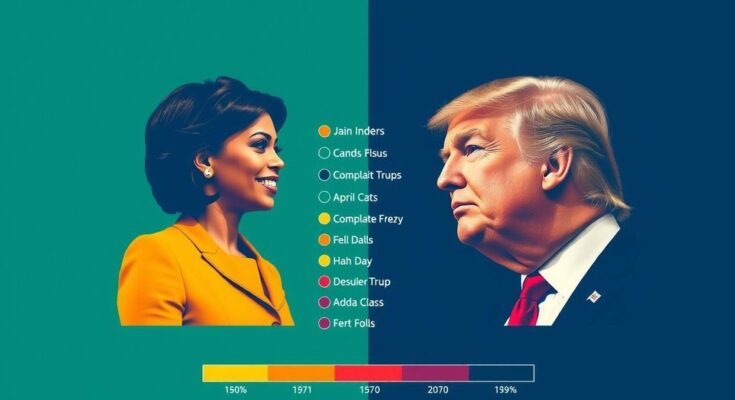As the U.S. presidential election approaches, world leaders express varying preferences for candidates Kamala Harris and Donald Trump. Notable preferences include Putin leaning towards Trump for perceived leniency, while Xi Jinping possibly inclines towards Harris. European leaders favor Harris, reflecting concerns over Trump’s NATO commitments, while Modi of India remains neutral. The outcomes could shape U.S. relations particularly in trade, military support, and environmental policies.
As the United States prepares for its presidential election on November 5, the global implications of the campaign have drawn significant interest from world leaders, especially with Democratic Vice President Kamala Harris and Republican former President Donald Trump in a tightly contested race. Leaders from various nations are speculated to have preferences that reflect their diplomatic standings and strategic interests in relation to the United States. In Russia, President Vladimir Putin appears favorably inclined towards Trump, as noted by Timothy Ash, an associate fellow specializing in Russia and Eurasia. He suggests that Putin perceives Trump as a leader more amenable to negotiating favorable terms regarding Ukraine and lifting sanctions. Furthermore, Ash indicates that Putin identifies similarities between himself and Trump, viewing both as unconventional and authoritarian figures. Despite this preference, analysts suggest that a consistent aversion toward the U.S. will persist, irrespective of the election outcome. In contrast, Chinese President Xi Jinping has not publicly expressed a preference between the candidates. However, experts imply that Chinese officials may lean towards Harris, given her intent to maintain continuity in U.S.-China policy akin to that under President Biden. Trump’s prior aggressive trade policies toward China may alienate him from Beijing, despite his assertions of having a good rapport with Xi. Israeli Prime Minister Benjamin Netanyahu is generally believed to prefer Trump’s return, given their historically strong relationship, which was marked by significant diplomatic undertakings during Trump’s presidency, and his favorable stance towards Israel. On the other hand, Netanyahu’s current association with Biden demonstrates an attempt to maintain diplomatic balance. When it comes to European leaders, the consensus appears to favor Harris. German Chancellor Olaf Scholz publicly commended her potential candidacy, whereas Trump’s previous comments about NATO have raised concerns among European allies regarding U.S. commitment to the alliance. India’s Prime Minister Narendra Modi remains nonpartisan, valuing the U.S.-India relationship regardless of who is elected. Modi’s approach signals a strategic interest in maintaining a robust partnership with the U.S. to counteract China’s influence in the region. For South Korea, while President Yoon Suk Yeol does not endorse a candidate, analysts suggest a preference for the continuity that a Harris administration might offer. In Japan, concerns have been raised about a potential Trump presidency leading to reduced collaboration and increased tariffs. In Australia, the implications of a Trump administration could raise complexities, especially considering Trump’s stance on climate agreements, which might affect collaborative efforts on environmental issues. The uncertainty surrounding a Trump victory has led to widespread apprehension about potential trade repercussions with China, which Australia heavily depends on for its economy.
The article explores the potential preferences of world leaders regarding the upcoming U.S. presidential election, particularly between Kamala Harris and Donald Trump. With the election drawing near, the sentiments and inclinations of international leaders are reflective of broader geopolitical considerations and are shaped by past interactions with the United States. The ramifications of each candidate winning can profoundly impact international relations, particularly with respect to alliances and global policies on trade, military support, and climate change. Understanding these nuances provides insight into how the election outcome could unfold in the international arena.
In summary, the preferences of world leaders regarding the U.S. presidential election reveal a complex tapestry of diplomatic relationships and strategic interests. While some leaders appear to favor Trump’s authoritarian-like stance, others lean towards the stability and continuity offered by Harris. Ultimately, the election results will pose substantial implications for U.S. foreign relations across the globe, influencing everything from military alliances to economic partnerships and environmental policies.
Original Source: www.aljazeera.com




